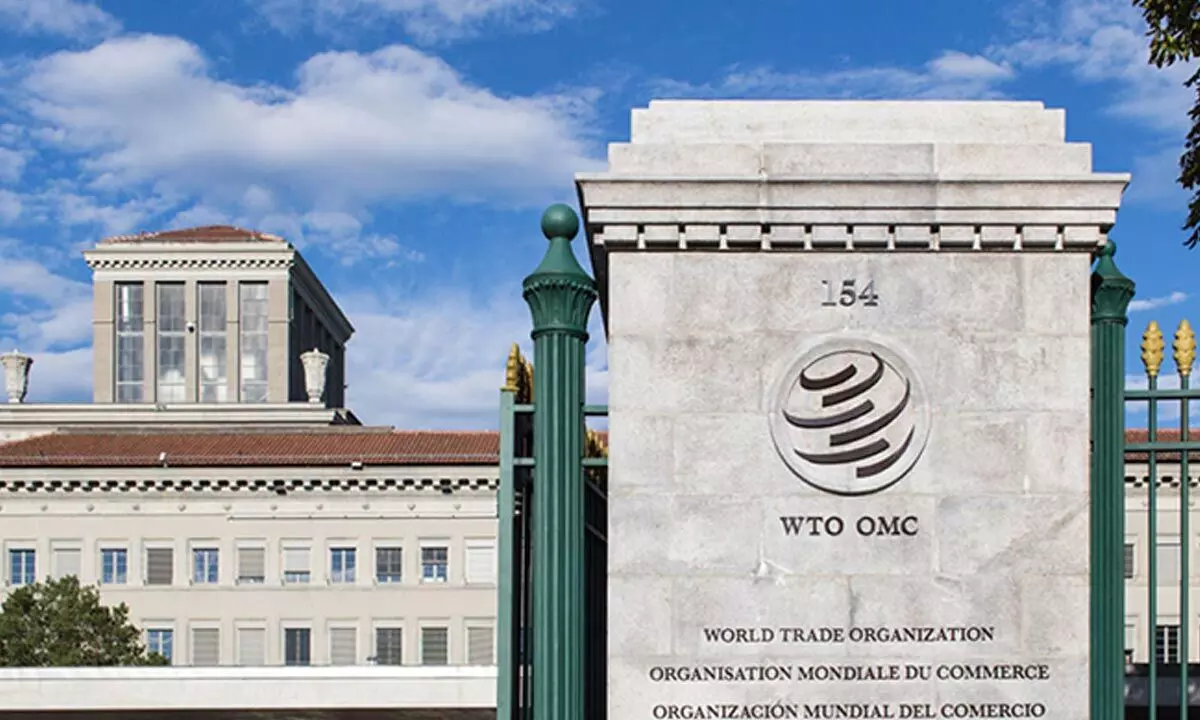Time to change tack post-WTO tariff setback
In the latest development, the World Trade Organization (WTO) has ruled in favour of the EU in a major case challenging India's tariff on key information and communication technology (ICT) products.
image for illustrative purpose

In the latest development, the World Trade Organization (WTO) has ruled in favour of the EU in a major case challenging India's tariff on key information and communication technology (ICT) products. In its panel ruling, it upheld all EU claims against India, whose tariffs of up to 20% on certain ICT products like mobile phones were ‘illegal’. The EU had initiated the WTO dispute settlement case against India in 2019. The amount of EU exports of such technology affected by India's violations is up to €600 million annually. The real impact on European companies, which also export to India, is considerably higher. The panel confirmed that India's tariffs could not be justified under any yardstick and it cannot invoke the Information and Technology Agreement (ITA) to escape commitments made in its WTO schedule nor limit its zero-duty commitment to products. WTO reiterated that there were no mistakes, whatsoever, when determining India's tariff commitments, including when the tariff lines nomenclatures were updated, and refused a reassessment as sought by India. Such changes need to be negotiated among WTO members. Trading is an excellent weapon for any developing country, and one who uses it rightly wins prosperity and wealth for their country. India, as a developing nation, does the same. Most of India’s GDP depends upon its agriculture, as it exports agrarian products across the world. Used appropriately trading can boost a country’s development while being non-judicious can prove detrimental.
There have been some positive impacts of the WTO on India, a founding-member. The country has a perfect balance of imports and exports and its export competitiveness has been improved, and duly approved, by the world body, especially because the lower tariff has helped integrate with the global economy in a more efficient manner. The growth has been tangible as development has been pursued by transfer and exchange of technology and ideas. A significant role played by WTO as regards India is that it has helped better settle trade disputes in a well-defined and structured manner.
However, like in every aspect of life, there have been considerable negative impacts of WTO vis-s-vis India, which has been harmed in several ways. A major setback has been that the TRIPs agreement went against the Indian Patents Act (1970). The introduction of product patents by MNCs caused a hike in drug prices, which left no generic option for the Indian poor. Research institutions have been adversely impacted when intellectual property rights were extended to agriculture, the major source of livelihood for India as a nation. To add to these problems was the MFN (most favoured nations) clause that was against Indian interests on the one hand while on the other extreme it led to a Chinese ‘invasion’ into the Indian market by way of dumping. However, the issue is not a closed one as India is likely to appeal against the WTO ruling.

